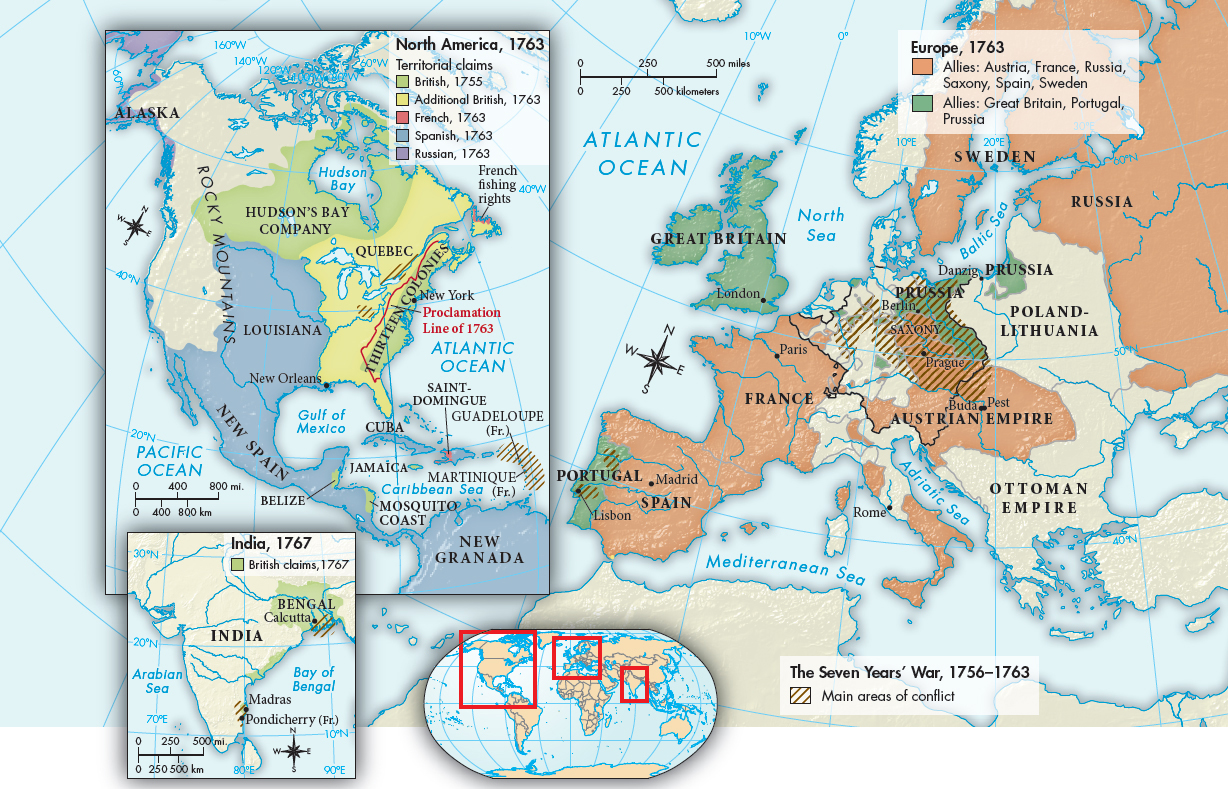A History of World Societies:
Printed Page 652
A History of World Societies Value
Edition: Printed Page 657
The Seven Years’ War
The roots of revolutionary ideology could be found in Enlightenment texts, but it was by no means inevitable that such ideas would result in revolution. Many members of the educated elite were satisfied with the status quo or too intimidated to challenge it. Instead events — political, economic, and military — created crises that opened the door for radical action. One of the most important was the global conflict known as the Seven Years’ War (1756–
The war’s battlefields stretched from central Europe to India to North America (where the conflict was known as the French and Indian War), pitting a new alliance of England and Prussia against the French, Austrians, and, later, Spanish. Its origins were in conflicts left unresolved at the end of the War of the Austrian Succession in 1748, during which Prussia had seized the Austrian territory of Silesia. In central Europe, Austria’s monarch Maria Theresa vowed to win back Silesia and to crush Prussia, thereby re-
Unresolved tensions also lingered in North America, particularly regarding the border between the French and British colonies. The encroachment of English settlers into territory claimed by the French in the Ohio Valley resulted in skirmishes that soon became war. Although the inhabitants of New France were greatly outnumbered — Canada counted 55,000 inhabitants, compared to 1.2 million in the thirteen English colonies — French forces achieved major victories until 1758. Both sides relied on the participation of Native American tribes with whom they had long-
British victory on all colonial fronts was ratified in the 1763 Treaty of Paris. Canada and all French territory east of the Mississippi River passed to Britain, and France ceded Louisiana to Spain as compensation for Spain’s loss of Florida to Britain. France also gave up most of its holdings in India, opening the way to British dominance on the subcontinent (Map 22.1)

By 1763 Britain had realized its goal of monopolizing a vast trading and colonial empire, but at a tremendous cost in war debt. France emerged from the conflict humiliated and broke, but with its profitable Caribbean colonies intact. In the aftermath of war, British, French, and Spanish governments had to increase taxes to repay loans, raising a storm of protest and demands for political reform. Since the Caribbean colony of Saint-